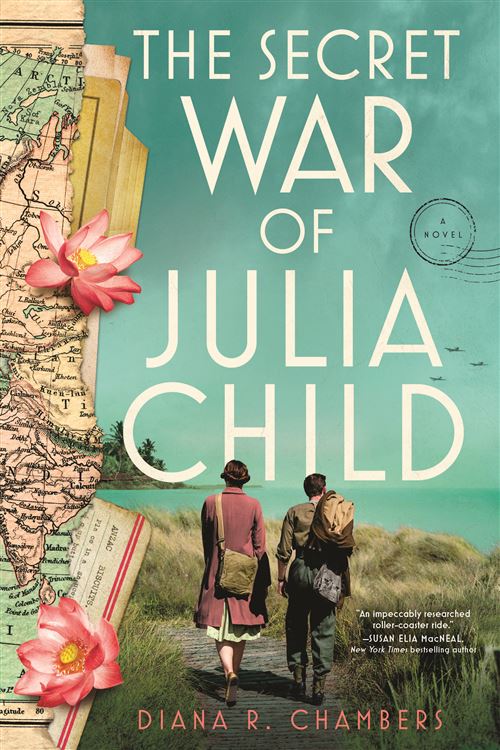Review: Julia Child as a baker, cook, icon ... and spy?
Shannon Reed / InReview
When I discuss not-yet-successful stories with students, I almost always return to the same core questions: if we assume that the person who wrote this wanted to write well, and cared about their project, where did the mistake arise, and can we fix it now?
Of course, this technique, while quite helpful educationally, is less so when considering a published work, such as Diana R. Chambers’ new novel, “The Secret War of Julia Child.” Much as I feel it might help to find the mistakes, I very much doubt Chambers wishes to rewrite it now.
To its credit, the book’s astonishingly well-researched, and I sense a real affection for her main character, who is indeed Julia Child: bon vivant, America’s best-known celebrity chef, and an icon in our culture.
Alas, her presence is also the most confounding part of this historical fiction, about Julia Child as a spy in Asia in World War II — when she was unmarried Julia McWilliams while serving in the Office of Strategic Services. She wasn’t a chef, hadn’t studied French cooking, and showed little interest in cuisine beyond general appreciation during the events of this novel.
So Chambers finds herself between a rock (the truth) and a hard place (the demands of fiction) with her conceit. Child always maintained that she was an office worker, never a spy, and indeed, her official OSS file is available online, revealing no clandestine work.
Thus, this book with a kicky biographic hook and great factual content is somehow still fiction: a made-up tale of derring-do that Julia Child never actually did. Chambers’ research into what U.S. military operations in Asia would have been like is phenomenal, but she isn’t able to quite bring us into Child’s perspective, perhaps because she seems to flounder when tasked with making up her main character’s inner life. Who wouldn’t?
Readers are told repeatedly that Julia Child was too tall (she really was 6’ 2”), awkward and warbling (as YouTube can confirm) and a great deal of fun, despite her lingering grief over her mother’s early death.
Beyond those facts, all of which I, never particularly interested in Child, knew before beginning the book, little more is revealed, and these points are mentioned over and over, until Child seems to have been a woman obsessed with her height, more so than her espionage.
Paul Child, the artist and map-maker serving the Allied cause, who Julia meets and falls in love with over the course of the book, is shown more clearly, and by the end, I, too, had fallen for his terse but gentle way of loving the best heart he could find around him. Her deft portrayal of Paul suggests that Chambers would have been better off with a different set-up in perspective, one that kept all the characters at a slight remove.
If I was discussing this book with students, I might also gently point out that the characters’ dialogue is a bit overwrought, and, unfortunately, when it comes to native characters, a little stereotyped (yes, one Sri Lankan character really does say, “Americans very tall. You are like man” to Julia).
Two-thirds of the way in, the Julia character finally snaps because of her feelings for Paul, and it’s wonderful to see the character show pique and act irrationally. Did Julia really do the thing I won’t spoil? And did she really spend the next few weeks in emotional turmoil over it?
I don’t know, but it enlivens the book and somehow feels like I’ve learned a bit more about the real Julia by Chambers’ inclusion of it. If I was teaching this book, I’d point to that page and say, “More of this. This is when the Julia Child I’m interested in but don’t already know finally arrives.”
Shannon Reed is a teaching associate professor at the University of Pittsburgh, and, most recently, the author of “Why We Read: On Bookworms, Libraries and Just One More Page Before Lights Out.”
